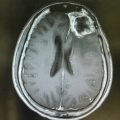Your computer may have been acting strangely. Perhaps it won’t start up properly. Or maybe you’ve been hearing weird noises coming from within your laptop or computer case. Whatever the symptom, you may be thinking about fixing your computer on your own. Many computer owners consider this option in favor of taking their machines to a professional computer repair service.
It is true that keeping your machine at home and trying to fix it can save you time. But there are a few things that should be considered before the decision to fix your computer yourself is made.
Is It Worth Fixing?
Most of today’s computers can become quickly obsolete. For example, if you were to purchase a computer today, the technology it uses could be well on its way out less than two years from now. So it’s important to consider for how long you’ve had your current computer. Knowing whether or not a computer is worth the time and money to fix can be a difficult thing to determine. Where this is the case, the size of your budget may be able to help you make the decision. Can you afford the cost to bring it into a professional so they can tell you what’s wrong? If so, then perhaps getting their diagnosis before attempting to fix the issue yourself is worth it.

What Were You Doing When The Problem Occurred?
If you can remember what program you were running or what activities you were engaging in when the computer issue made itself apparent, this could be the key to fixing it. If your browser crashed, think about what web site you were visiting at the time. If you were downloading something, consider the source of the download. Was it a source that you were sure you could trust?
Simple Solutions May Be Best
Sometimes a simple scan of your computer with your anti-virus or anti-malware software is all it takes. Viruses and malware can add files to your registry that can conflict with the other programs you may be using. Many times, eliminating malware from your system is all that’s required to set things right on your machine.
Although more of a preventative measure, giving your hard drive a good cleaning may be the key to not only fixing your current problem, but preventing the occurrence of future computer problems as well. Just like eating too much can make us feel tired and sluggish, so too can too many files on a computer. If you’ve been using your computer for a number of years, you may have installed and removed hundreds of programs. Doing this can mean that many files are not removable by uninstallation software, and can get left on your system.
What If It’s A Virus?
No one wants the news that their computer has been infected by a virus. But if this is the situation you find yourself in, it’s time to change the login information on all of the sites you access so that your information is kept secure. Just as you might call your bank or credit card company right away if you lost your cards, your information must be changed as quickly as possible.
Following any infection by a computer virus, it may also be a good idea to ensure that your passwords and other information is changed at least every few months. This will keep hackers at bay. And of course, always ensure that your passwords are a strong combination of letters and numbers. The stronger the combination, the harder your passwords will be for hackers to figure out.
There are many methods to fixing your computer, and they can all be accessed online. But always ensure that any advice you get comes from a source that you trust.
Citations:
- Things every computer user sould know how to do
Featured images:
- Photo credit: My Blog Guest community
Guest author Jesse Schwarz writes on a variety of tpics related to technology. He recommends www.highspeed-internet-providers.com for consumers interested in learning their options in broadband.

























No Comments
Leave a comment Cancel